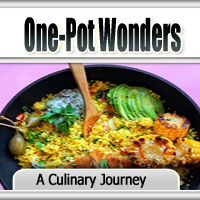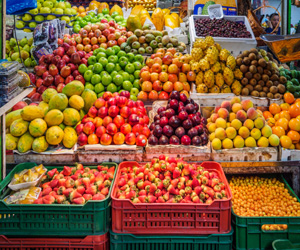


A Journey Through The World Of Fine Brews

A coffee connoisseur, also known as a coffee aficionado or enthusiast, is a person whose relationship with coffee transcends the everyday caffeine fix. They are a part of a dedicated and passionate community that values coffee as more than just a beverage; it's a complex and captivating experience that explores the nuances of flavor, origin, brewing methods, and the journey of the coffee bean from the farm to the cup.
The Journey Of A Coffee Connoisseur
The path to becoming a coffee connoisseur is marked by a series of deliberate steps, each contributing to a deeper understanding and appreciation of coffee:
1. The Quest For Quality Beans: A coffee connoisseur's journey begins with the careful selection of coffee beans. They explore a variety of origins, blends, and single-origin coffees to appreciate the distinct flavors and aromas each has to offer. The choice of beans is not just a matter of taste but a way to connect with coffee's cultural and geographical diversity.
2. The Art Of Roasting: Understanding the roasting process is central to coffee connoisseurship. The connoisseur seeks to identify roast levels, discovering the subtle differences between light, medium, and dark roasts, and the effects on flavor and aroma.
3. Brewing Mastery: A connoisseur becomes well-versed in brewing methods, experimenting with techniques like pour-over, French press, AeroPress, espresso, and cold brew. They perfect their brewing skills to unlock the full potential of each coffee bean.
4. Exploration Of Coffee Cultures: Coffee connoisseurs often delve into the coffee cultures of different regions. They explore the traditions and rituals associated with coffee, from the espresso bars of Italy to the coffee ceremonies in Ethiopia.
5. Sensory Development: Developing a keen palate and an acute sense of smell is paramount. Connoisseurs practice sensory exercises to identify the flavors, aromas, and even the body of coffee. They participate in cupping sessions, where they evaluate the qualities of different beans and roasts.
6. Connection With The Coffee Community: Being a coffee connoisseur often means joining a passionate and supportive community. They participate in coffee tastings, engage in discussions about coffee processing methods, and share their knowledge and experiences with fellow enthusiasts.
Coffee As A Lifestyle
For a coffee connoisseur, coffee is not just a drink; it's a lifestyle. They invest in high-quality brewing equipment, source the finest beans, and pay attention to every detail of the brewing process. It's not just about caffeine; it's about the sensory journey, the connection with coffee's rich history, and the thrill of discovering new flavors with every cup.
The Pursuit Of Excellence
Above all, coffee connoisseurs are on a relentless quest for the perfect cup. They recognize that perfection is a moving target, and every coffee experience is an opportunity to explore and refine their craft. Whether it's chasing the ideal extraction time for an espresso shot or fine-tuning the grind size for a pour-over, they are dedicated to pushing the boundaries of what coffee can be.
The coffee connoisseur is a symbol of a deep and abiding love for coffee. They embody the art of patience, precision, and the ceaseless exploration of a humble bean's infinite potential. Beyond the casual coffee drinker, the coffee connoisseur is an explorer, a taster, and a curator of the complex world of coffee, demonstrating that even the daily ritual of coffee consumption can be an extraordinary journey.
Exploring The Benefits Of Organic Options
 Supporting Sustainable Agriculture: Organic options are closely linked to sustainable agriculture, which promotes ethical and environmentally friendly practices. Sustainable farming methods not only protect the environment but also support the livelihoods of farmers. By purchasing organic products, you're contributing to a more sustainable and fair agricultural system.
Supporting Sustainable Agriculture: Organic options are closely linked to sustainable agriculture, which promotes ethical and environmentally friendly practices. Sustainable farming methods not only protect the environment but also support the livelihoods of farmers. By purchasing organic products, you're contributing to a more sustainable and fair agricultural system.
Cleaner And Safer Cosmetics: Organic options extend beyond the realm of food. Organic cosmetics and personal care products are also available, offering consumers a safer and more natural way to care for their bodies. These products are typically free from harmful synthetic chemicals, making them a healthier choice for both your skin and the planet.
Transparency And Certification: Organic options are subject to stringent certification standards in many countries. These standards ensure that products labeled as "organic" meet specific criteria.




Nourishing The Planet And Ourselves
 Local And Seasonal Sourcing: Embracing local and seasonal food is another pillar of food sustainability. The transportation of food over long distances generates a substantial carbon footprint. Choosing local and seasonal ingredients reduces greenhouse gas emissions and supports local economies. It also encourages consumers to connect with the natural rhythms of their environment and enjoy a wider variety of fresh, in-season produce.
Local And Seasonal Sourcing: Embracing local and seasonal food is another pillar of food sustainability. The transportation of food over long distances generates a substantial carbon footprint. Choosing local and seasonal ingredients reduces greenhouse gas emissions and supports local economies. It also encourages consumers to connect with the natural rhythms of their environment and enjoy a wider variety of fresh, in-season produce.
A Look At The Evolution And Impact
 Perceived Health Benefits: Some people believe that eliminating gluten from their diet can lead to improved digestion, weight loss, and increased energy. However, the scientific consensus on these claims remains inconclusive.
Perceived Health Benefits: Some people believe that eliminating gluten from their diet can lead to improved digestion, weight loss, and increased energy. However, the scientific consensus on these claims remains inconclusive.
Celebrities And Influencers: High-profile celebrities and social media influencers have helped popularize gluten-free diets by sharing their personal experiences and endorsing gluten-free products.
Growing Gluten-Free Market: The food industry has recognized the demand for gluten-free products, resulting in an expansion of gluten-free options and a significant increase in gluten-free product availability.
The Gluten-Free Food Industry
The gluten-free trend has not only influenced consumer behavior but has also significantly impacted the food industry. Gluten-free product sales have skyrocketed, leading to an influx of gluten-free alternatives in various categories, from bread and pasta to snacks and baked goods. This trend has also led to an increased demand for gluten-free labeling and certification, promoting transparency for consumers.
 A Variety Of Sources
A Variety Of Sources
The good news is that antioxidants are abundant in a wide range of foods, making it easy to incorporate them into your diet. Fruits such as blueberries, strawberries, and pomegranates, and vegetables like kale, spinach, and broccoli are rich in antioxidants. Additionally, nuts, seeds, and certain spices like turmeric and cinnamon also offer an antioxidant punch. Dark chocolate, tea, and red wine, in moderation, are other delightful sources of antioxidants.
Health Benefits Of Antioxidants
The health benefits of consuming antioxidant-packed foods are numerous and well-documented. Here are some of the ways they can enhance your well-being:
Reduced Risk Of Chronic Diseases: Antioxidants can help reduce the risk of chronic diseases, including heart disease, cancer, and diabetes. By neutralizing free radicals, they protect cells and DNA from damage.
Anti-Aging: Antioxidants play a role in skin health by protecting against UV radiation and environmental pollutants, which can accelerate skin aging.
Improved Immune Function: A diet rich in antioxidants supports a robust immune system, helping the body fight off infections and illnesses.
Enhanced Brain Health: Some antioxidants, like those found in berries and leafy greens, have been linked to improved cognitive function and a reduced risk of neurodegenerative diseases such as Alzheimer's.
Sip Your Way To Health And Vitality
 One of the primary benefits of nutrient-dense refreshments is their ability to deliver a substantial dose of vitamins and minerals. For instance, green smoothies loaded with leafy greens like spinach and kale provide essential vitamins such as A, C, and K, along with minerals like potassium and magnesium. These nutrients play a pivotal role in supporting your immune system, promoting healthy skin, and maintaining proper muscle and nerve function.
One of the primary benefits of nutrient-dense refreshments is their ability to deliver a substantial dose of vitamins and minerals. For instance, green smoothies loaded with leafy greens like spinach and kale provide essential vitamins such as A, C, and K, along with minerals like potassium and magnesium. These nutrients play a pivotal role in supporting your immune system, promoting healthy skin, and maintaining proper muscle and nerve function.
Antioxidant-Rich Elixir
Antioxidants are like the superheroes of the nutrition world, defending your body against free radicals and oxidative stress. Nutrient-dense refreshments are often teeming with antioxidants derived from fruits, vegetables, and superfoods like berries, beets, and turmeric. These antioxidants help protect your cells from damage, reduce inflammation, and support your overall health.
The Foundation Of A Healthy Body
 The Crucial Role Of Minerals
The Crucial Role Of Minerals
Minerals are inorganic substances that our bodies require in relatively small amounts to function correctly. They serve as critical components in various physiological processes and contribute to overall health. Minerals are classified into two categories: macrominerals and trace minerals. Both types are essential, but macrominerals are required in larger quantities.
Macrominerals: The Body's Building Blocks
Calcium: Renowned for its role in bone health, calcium also aids in muscle function, nerve transmission, and blood clotting. Dairy products, leafy greens, and fortified foods are good sources.
Magnesium: This mineral is involved in hundreds of biochemical reactions, including energy production and muscle and nerve function. Magnesium can be found in nuts, seeds, and whole grains.
Sodium: Although excessive sodium can lead to health issues, it is essential for maintaining proper fluid balance, nerve function, and muscle contractions. Table salt is the most common dietary source.
Embark On Your Culinary Journey
 2. Cost-Effective: Eating out or ordering takeout can be expensive. Cooking at home is often more budget-friendly and cost-effective in the long run.
2. Cost-Effective: Eating out or ordering takeout can be expensive. Cooking at home is often more budget-friendly and cost-effective in the long run.
3. Empowerment: Learning to cook empowers you to take charge of your diet and make informed food choices. It's a life skill that fosters independence.
4. Culinary Exploration: Cooking introduces you to different cuisines, ingredients, and flavors. It's a journey of exploration and creativity.
5. Sense Of Accomplishment: Preparing a meal from scratch and sharing it with loved ones can be immensely satisfying. It's a source of pride and accomplishment.
Tips For Cooking For Beginners
Here are some practical tips to help beginners embark on their culinary journey:
1. Start With The Basics: Begin with simple recipes and gradually work your way up to more complex dishes. Cooking is a skill that develops over time.
2. Gather Essential Tools: Invest in a few essential kitchen tools, such as a sharp knife, cutting board, pots, and pans. These items are the foundation of any kitchen.